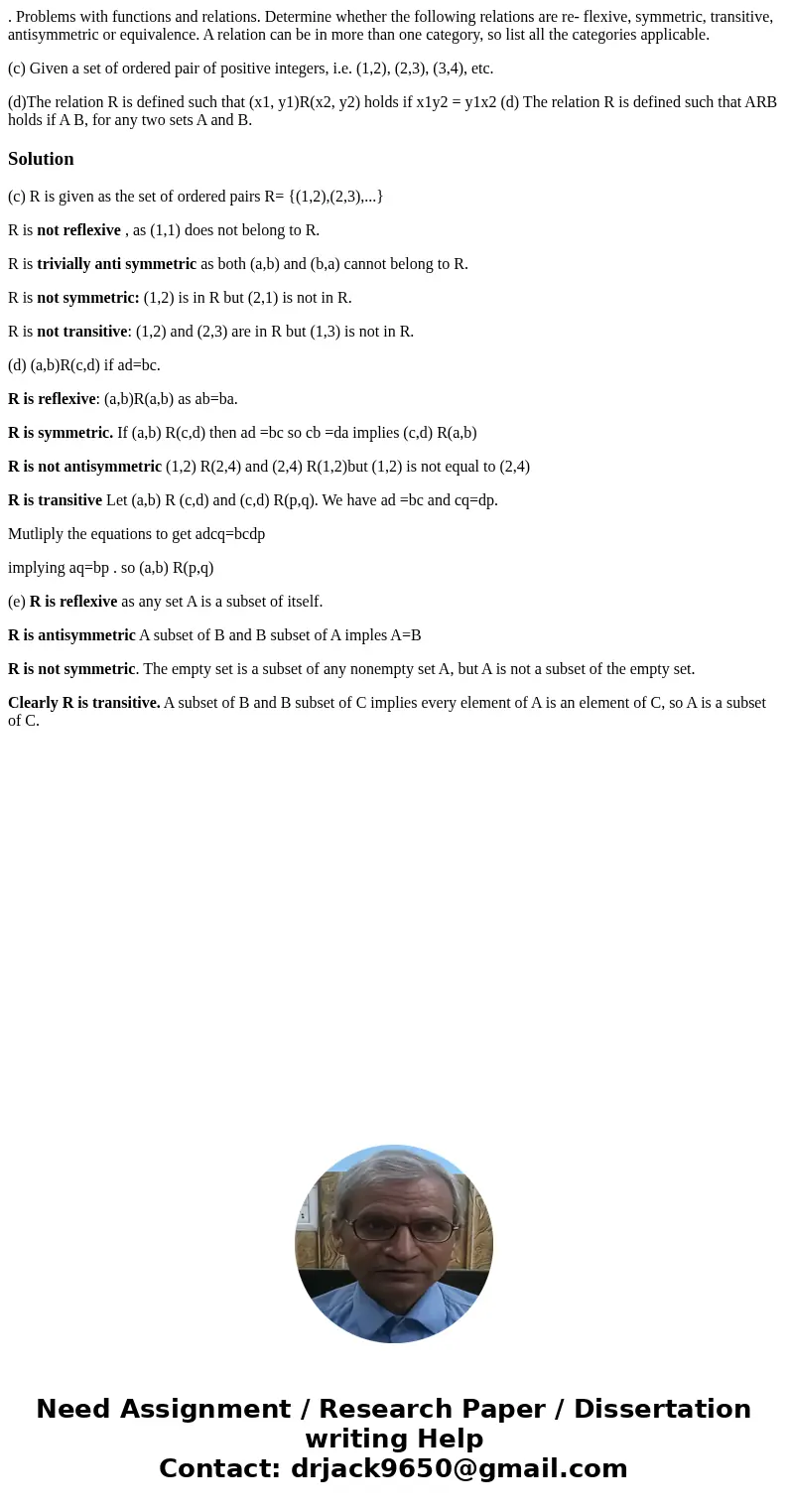Problems with functions and relations Determine whether the
. Problems with functions and relations. Determine whether the following relations are re- flexive, symmetric, transitive, antisymmetric or equivalence. A relation can be in more than one category, so list all the categories applicable.
(c) Given a set of ordered pair of positive integers, i.e. (1,2), (2,3), (3,4), etc.
(d)The relation R is defined such that (x1, y1)R(x2, y2) holds if x1y2 = y1x2 (d) The relation R is defined such that ARB holds if A B, for any two sets A and B.
Solution
(c) R is given as the set of ordered pairs R= {(1,2),(2,3),...}
R is not reflexive , as (1,1) does not belong to R.
R is trivially anti symmetric as both (a,b) and (b,a) cannot belong to R.
R is not symmetric: (1,2) is in R but (2,1) is not in R.
R is not transitive: (1,2) and (2,3) are in R but (1,3) is not in R.
(d) (a,b)R(c,d) if ad=bc.
R is reflexive: (a,b)R(a,b) as ab=ba.
R is symmetric. If (a,b) R(c,d) then ad =bc so cb =da implies (c,d) R(a,b)
R is not antisymmetric (1,2) R(2,4) and (2,4) R(1,2)but (1,2) is not equal to (2,4)
R is transitive Let (a,b) R (c,d) and (c,d) R(p,q). We have ad =bc and cq=dp.
Mutliply the equations to get adcq=bcdp
implying aq=bp . so (a,b) R(p,q)
(e) R is reflexive as any set A is a subset of itself.
R is antisymmetric A subset of B and B subset of A imples A=B
R is not symmetric. The empty set is a subset of any nonempty set A, but A is not a subset of the empty set.
Clearly R is transitive. A subset of B and B subset of C implies every element of A is an element of C, so A is a subset of C.

 Homework Sourse
Homework Sourse